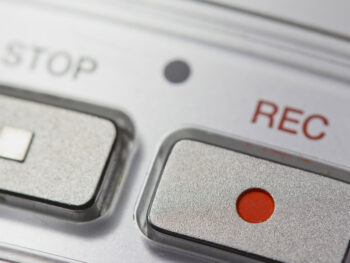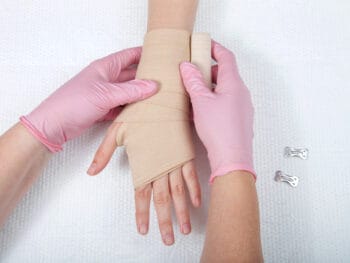Too often when adjusters are completing their investigations they overlook the witnesses.
This is mostly due to the fact that adjusters are just going through the motions and not paying proper attention to what the claimant is actually saying. It is a question on their sheet, and they ask it. If there are witnesses that the injured worker names, that is where it ends. They have a name for later on. Then months later when this case goes in to litigation, then they follow up with the witness who can’t remember what happened. This renders them useless to the defense of the file, when in retrospect they could hold the most important key to your defense.
I would bet even when there are witnesses, the claimant fails to name them in order to try and cement the validity of their claim. The want to ensure the only account of the injury is their account. The employer should also be asked if there were witnesses. If there were, then at the very least written statements need to be made and submitted to the adjuster.
Best Way to Investigate Witnessed Claims Is Immediately By Adjuster or Employer
The best way to investigate witnessed claims would be to go out and interview the witnesses themselves, and record it to be a part of the file. Due to geographical limitations, this may not be possible, but you can always record the conversation over the phone. However this is done, it needs to be done right away. The more time that goes by the less they will remember.
There is no doubt the employer would assist the adjuster in making this interview happen. If this is a proactive employer they complete their own internal investigation, and witness statements should be a key aspect of that investigation. If it is not, then the adjuster needs to point out to them time and time again that they need to comb the work floor to see if anyone saw what happened. It can’t be stressed enough how important this is to the overall investigation of the claim.
The Witness That Saved Huge Dollars
Case in point, I reviewed a claim where an employee fell in a parking lot on his way in to work. It was a snowy evening, and this claimant worked the night shift. He came in to work and said he fell in the parking lot, but declined medical treatment. The employer asked if anyone saw him fall and he said no.
A week later he came in the office of the employer and asked to go for medical treatment because his back was killing him. The adjuster found out that there were witnesses to the fall because the employer did a proper investigation right after the injury was mentioned. The injured employee did not know that someone saw him fall. He told the employer he fell on his low back/buttocks hard without putting his hands down to stop the fall. The witness however stated that the injured worker fell on his knee, not very hard, and did not fall all the way to the ground.
Later when he went for treatment, he was sent for an MRI due to radicular complaints. Turns out he had hardware in place from a prior back surgery that was not work related. He also had all kinds of new damage. The adjuster talked to the doctor about the fall, and the doctor agreed that had he sustained all of this damage due to this slip/fall he would have never been able to work a week without getting treatment. He actually would have had a hard time even getting up from the ground had all of this damage occurred from the alleged fall.
When getting the statement, the claimant stated he fell to the ground hard and limped in to work even though the employer said he worked a week walking fine, with no complaints. When confronted with the witness statement and the doctor comment about the validity of the injury happening from the fall, the employee became combative and went to obtain legal counsel. Later in mediation, after faced with the ammo of the witness and the doctor, the plaintiff attorney withdrew representation on the case. The claimant was caught in a lie, to both the adjuster and to the employer, and to the treating doctors on the case, and was deemed to be not credible.
Had this adjuster not received this statement from the witness, this entire case would have blown apart. We are talking another back surgery, potentially paid for by work comp, on a guy in his later 60’s. The outcome probably would have been terrible. But the power of this witness statement turned the case around.
Granted this may not happen on every case like this, but it goes to show you how powerful a witness statement can be. So be sure to do your homework, and give those witnesses as much attention as you would the claimant.
A Witness Can Hold The Key To Your Defense
In this case the witness was another line worker, with nothing to gain by fabricating up some story in malice, and the mediator agreed. The witness said coming forward was the right thing to do. At the end of the day, the carrier was able to dodge a claim that would have for sure ended up costing them significant dollars by the time it was all said and done.
You never know when your next case is your next nightmare so be thorough, and give witnesses the attention they deserve. They could hold the key to your defense later down the road.
Author Michael B. Stack, CPA, Principal, Amaxx Risk Solutions, Inc. is an expert in employer communication systems and part of the Amaxx team helping companies reduce their workers compensation costs by 20% to 50%. He is a writer, speaker, and website publisher. www.reduceyourworkerscomp.com. Contact: mstack@reduceyourworkerscomp.com.
©2014 Amaxx Risk Solutions, Inc. All rights reserved under International Copyright Law.
WORK COMP CALCULATOR: http://www.LowerWC.com/calculator.php
MODIFIED DUTY CALCULATOR: http://www.LowerWC.com/transitional-duty-cost-calculator.php
WC GROUP: http://www.linkedin.com/groups?homeNewMember=&gid=1922050/
SUBSCRIBE: Workers Comp Resource Center Newsletter


























